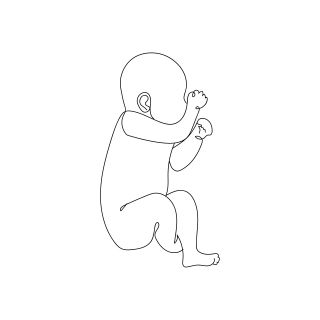Stress
Stress Begins Before Birth
You've been dealing with stress longer than you think.
Posted January 11, 2024 Reviewed by Ray Parker
Key points
- Research shows a pregnant mother’s stress can impact their developing fetus.
- Stress hormones from the mother affect the development of the brain in utero.
- Stress and economics conspire to impact children before they're born.

We sometimes fail to acknowledge how early the environment starts to affect our development. In the classic "nature-versus-nurture" debate, we often assume that nurturing begins at birth.
There is, however, a full nine months of nurturing that goes on in utero. The impact of a mother's nutrition on the developing fetus is well-documented. The impact of a mother's stress on development is no less important.
Anyone who has ever been pregnant or been around a pregnant person knows that pregnancy is stressful. Although we tend to focus on the negative effects of stress on the mother, emerging research is highlighting the impact of a mother's stress on the developing fetus. Recent work has documented the impact of the mother's stress hormones, such as cortisol, in conjunction with their socioeconomic status on the developing fetus's brain and body.
We know that poverty during pregnancy can affect the developing brain. In a recent study of over 200 mother-infant pairs, infants born to mothers from a lower socioeconomic status (SES) had smaller brain volumes compared to those born to higher SES moms (Triplett et al., 2022). These findings provide further support for the idea that poverty gets under the skin (in this case, under the skull), and that it does so even before we're born.
What about the combination of poverty and stress? Specific regions of the brain, such as the amygdala, which plays a role in emotional behavior, may be particularly impacted by stress and poverty. Infants whose mothers had high cortisol levels during pregnancy coupled with low SES had smaller amygdala volumes.
By contrast, infants born to higher SES mothers did not show smaller amygdala volumes, regardless of their mother's cortisol levels (Herzberg et al., 2023). These results demonstrate how greater material resources can serve as a buffer against the negative effects of stress—even at a cellular level.
The one-two punch of stress and poverty can have a lasting impact on the brain and behavior. The experiences during sensitive periods like gestation can impact genetics and physiology by setting the stage for responses to future challenges. The environmental signals that a fetus receives in utero provide an indication of what to expect after birth.
If resources are plenty and stress is low, the developing brain will have the necessary tools to function in a world of plenty. But if prenatal resources are scarce and stress is high, the fetal brain may develop in a way that is more suited to a poor, stressful world. In such a world, a small, reactive amygdala may be oversensitive to potential threats, leading to a pattern of anxiety.
The prenatal impact of environmental stress should be viewed in an opportunistic light. It's never too early to intervene to reduce the negative impacts of both stress and poverty. Poverty-reduction and stress-reduction programs should be incorporated as a major component of prenatal care.
References
Herzberg, M. P., Triplett, R., McCarthy, R., Kaplan, S., Alexopoulos, D., Meyer, D., Arora, J., Miller, J. P., Smyser, T. A., Herzog, E. D., England, S. K., Zhao, P., Barch, D. M., Rogers, C. E., Warner, B. B., Smyser, C. D., & Luby, J. (2023). The Association Between Maternal Cortisol and Infant Amygdala Volume Is Moderated by Socioeconomic Status. Biological Psychiatry Global Open Science, 3(4), 837–846. https://doi.org/10.1016/j.bpsgos.2023.03.002
Triplett, R. L., Lean, R. E., Parikh, A., Miller, J. P., Alexopoulos, D., Kaplan, S., Meyer, D., Adamson, C., Smyser, T. A., Rogers, C. E., Barch, D. M., Warner, B., Luby, J. L., & Smyser, C. D. (2022). Association of Prenatal Exposure to Early-Life Adversity With Neonatal Brain Volumes at Birth. JAMA Network Open, 5(4), e227045. https://doi.org/10.1001/jamanetworkopen.2022.7045


